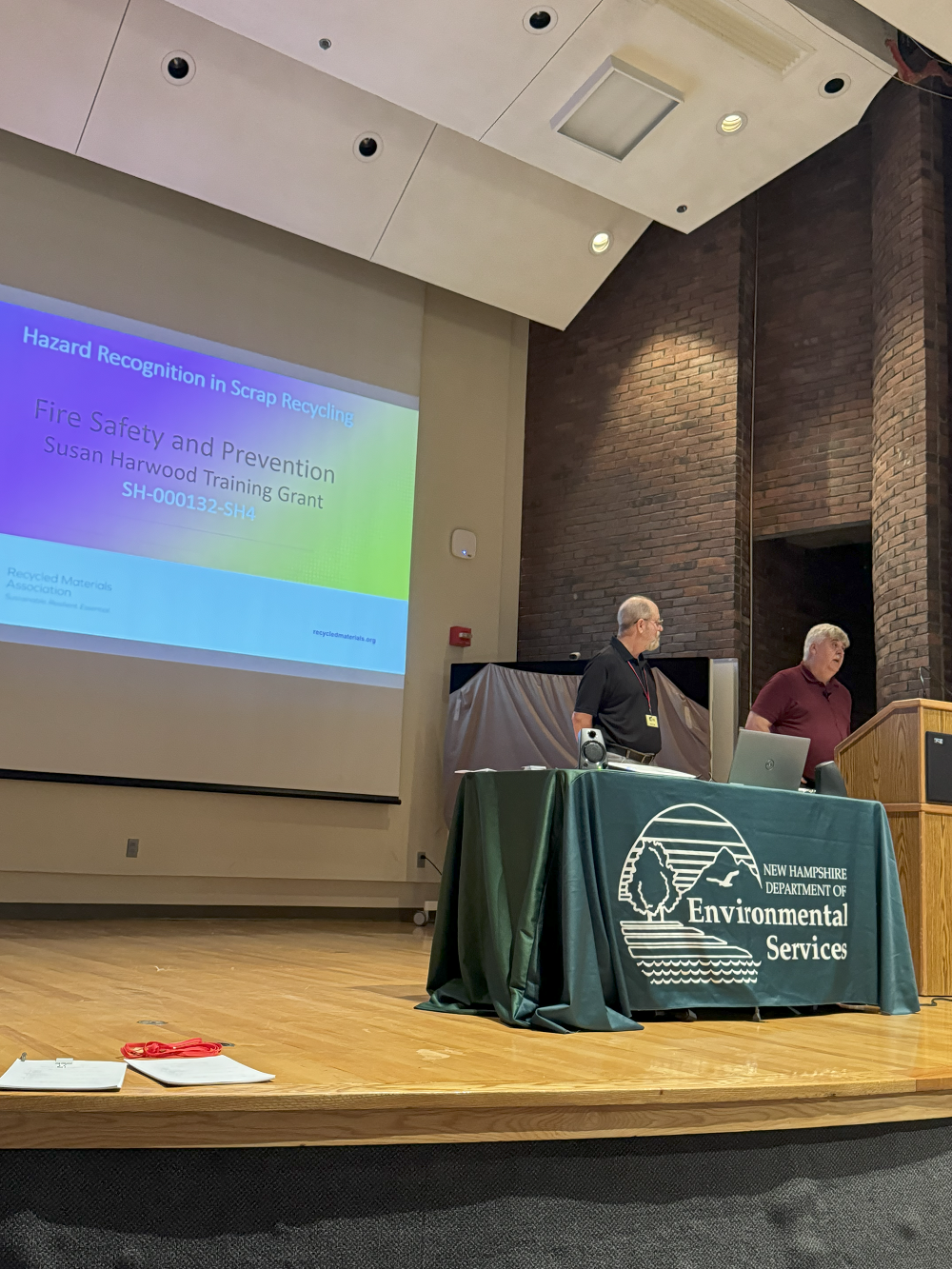ReMA Staff Lead Fire Safety and Training Course to New Hampshire Recyclers
On Tuesday, July 29, and Wednesday, July 30, ReMA’s Safety Team were in Concord, New Hampshire teaching the OSHA Hardwood Grant Fire Hazards and Recognition Course to solid waste operators and recyclers. The course was led by Jerry Sjogren, ReMA’s Senior Director of Safety, and ReMA’s consultant Tony Smith.
ReMA received grant funding through OSHA’s Susan Harwood Training grant program to develop these education and training materials. This comprehensive 4-hour course on fire safety & prevention in recycling helps recyclers to better understand:
- Emergency action procedures;
- Fire extinguisher usage;
- Ignition and fuel sources;
- The importance of inbound source control;
- Relationship building with the local fire department;
- Fire protection systems; and
- General housekeeping and storage.
Over 100 participants joined the training, which was hosted by the New Hampshire Department of Environmental Services (NHDES).
“I learned about ReMA’s course from an organization called NH Recycles,” said Tara Mae Albert, Solid Waste Operator Training & Certification Coordinator in the Waste Management Division of NHDES. “Their Executive Director, Reagan Bissonnette, told me about how ReMA’s Safety Team presents this course on fire safety for recyclers and after speaking with Jerry, I told him that it would be great if he could travel here to teach the course.”
According to Albert the course was held at the perfect time. As of July 1, 2025, rechargeable lithium-ion batteries are prohibited from disposal in New Hampshire’s landfills and incinerators. That’s due to the rise of fires and thermal events caused by improper disposal of these batteries.
“It’s not if there’s going to be a fire but when,” Sjogren said. “That’s why holding these classes are so important. We want to make sure that recyclers come away with greater knowledge and awareness of fire safety, prevention, and emergency action planning in the recycling workspace.”
In addition to a deep dive on battery safety and battery fires, the four-hour course also covered a variety of topics including fire and battery safety, the importance of housekeeping, emergency action procedures, different types of fire extinguishers and their proper use, and building relationships with the local emergency agencies.
“Relationship building is so crucial,” Albert said. “You need to invite the local fire department and EMTs into your facility to get a better understanding of who you are and your layout. That way, if there is a fire, they know where to go and how to prepare.”
Albert was grateful to the ReMA team for providing the course and hopes to work with the association for future training opportunities.
“Of course, there’s a lot of training materials out there and educational videos to watch, but having someone come in-person to review the materials and answer questions is really impactful,” she said.
